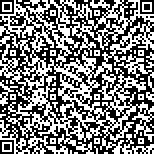下载中心
优秀审稿专家
优秀论文
相关链接
摘要

双矩阵MD(Matrix-Doubling)算法是辐射传输方程的一种数值解,考虑了植被层内的多次散射信号,具有较高的模拟精度。但受限于算法的复杂性,很难直接应用到地表参数的反演中。本文以玉米覆盖地表为研究对象,基于MD算法的模拟数据,发展了一种L波段多角度微波辐射参数化模型。基于模拟数据的对比结果表明,参数化模型具有与理论模型相当的精度,两者之间的发射率误差不超过0.004(V极化)和0.007(H极化)。同时,结合黑河流域的地面实测数据,利用本论文中发展的参数化模型模拟了纯玉米像元的辐射亮温。该模拟结果与相同像元尺度上机载L波段微波辐射计(PLMR)观测亮温之间的差异基本在10 K以内。
Matrix Doubling (MD) algorithm is an analytical solution for radiation transfer equation. MD presents relative accuracy in simulating the vegetation canopy microwave signals because the algorithm considers the multi-scattering effects. However, MD is difficult to apply in retrieving work because of its complexity. In this regard, the development of a microwave vegetation emission model, which not only takes a simple form but also considers volume scattering, is of considerable interest.
In this study, we present a parameterized multi-angular model of L-band microwave emission from corn. The model is derived using the MD algorithm. First, we validated the theoretical MD algorithm with in situ data obtained from the field experiment conducted in Huailai. A good agreement with experimental data lays a solid foundation for parameterization work. To start, we simulated the corn terrain emissions in both V and H polarization at 1.4 GHz by using the theoretical MD algorithm. The incident angles were set from 5°to 59° with 2° intervals in each band. The simulations covered a broad range of corn canopy and soil dielectric. Finally, the parameterized model related the total emissivity to the optical depth of the corn and the emissivity of ground. Moreover, this model provides a series of coefficients at different incident angles. The functions between the coefficient and incident angles were provided to determine the form of the model when the angle was set.
The differences between the parameterized model and the theoretical model are minimal and have RMSE in the 10-3 range of the L-band. We also validated the parameterized model using airborne PLMR observations. The simulation error in three nonconsecutive days (June 7, June 26 and August 2) is within 10000 overall. This finding shows that the parameterization model is successful in the simulation of L-band microwave emissions from corn.
The parameterization model not only presents a simple form but also exhibits high accuracy by including volume scattering. Moreover, unlike other semi-empirical models, the input of the parameterization model possesses physical meaning and is not based on prior knowledge. Therefore, the parameterization model is of significant importance in retrieval work. Meanwhile, the capability to simulate corn emission from the L-band at a broad angle range improves the possibility for model applications to data from satellite. However, owing to the coarse resolution of passive microwave remote sensing, the parameterization model requires further improvement to achieve universal applicability particularly in highly heterogeneous land surfaces.

